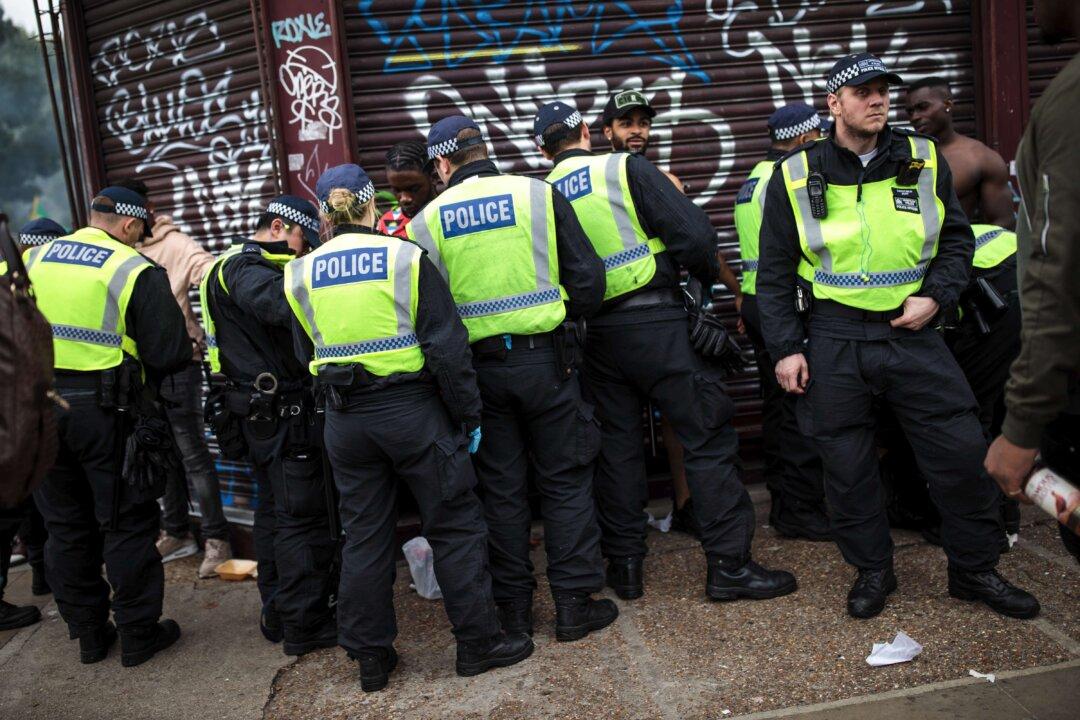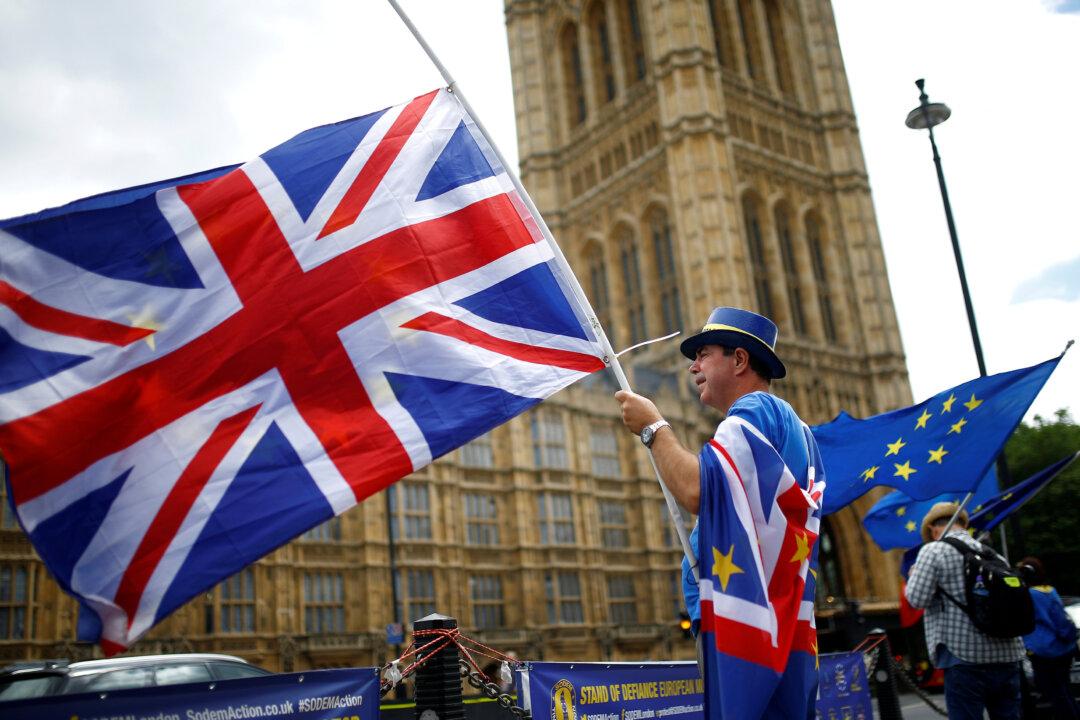LONDON—The UK’s surge in knife crime is back in the spotlight, with the latest figures showing it has climbed to record levels.
The most recent fatal knifing victim in London, a 16-year-old boy, was the fifth person to die from suspected stab wounds in the capital in the span of a week. In response, on Nov. 6 and 7, law enforcement officers were granted the power to “stop and search” anyone during specific hours in several London boroughs.





